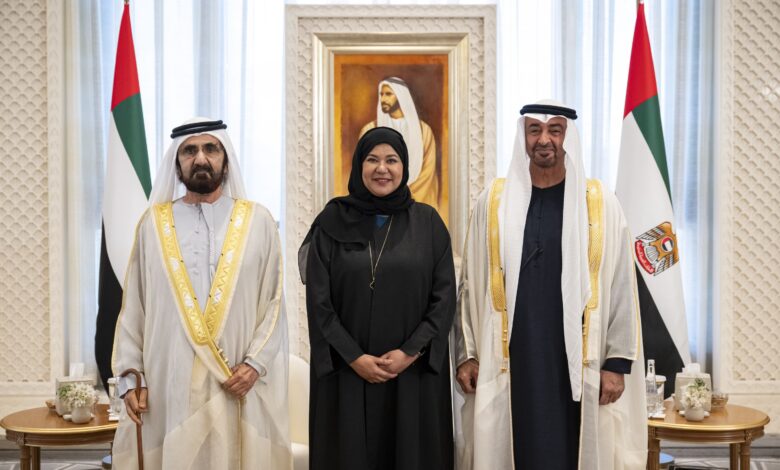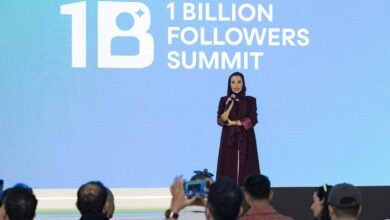
The UAE Ministry of Family: A New Era for Social Cohesion
The UAE Ministry of Family’s establishment represents one of the most important steps in the nation’s steadfast dedication to social development and family well-being. The UAE has taken this bold step to address modern families’ needs while keeping traditional values intact.
The Ministry stands as the life-blood of family support programs that blend state-of-the-art technology with conventional support systems. Smart services, AI-powered systems and evidence-based policies help create a reliable framework. These elements strengthen family bonds and enhance social cohesion throughout the emirates.
This piece shows how the UAE Ministry of Family reshapes the scene of family support services. It implements future-ready frameworks and measures their effects on society. Readers will find the state-of-the-art approaches and best practices that make the UAE a leader in family-centered social development.
Revolutionizing Family Support Through Digital Innovation
Digital transformation has changed family support services in the UAE. Traditional service delivery has moved to innovative digital solutions. The UAE started its digital trip in 2001 with eDirham, which grew into a detailed smart government ecosystem.
Smart services and digital transformation
The Ministry wants to cut 50% of federal government service centers within two years and move these services to digital platforms. This strategy positioned the UAE as a global leader that ranks first in 23 indicators across vital sectors including telecommunications and health services.
Key digital family support services include:
- Free family counseling through the 800623 hotline
- Family counseling eService platforms
- Smart family consultation powered by artificial intelligence
AI-powered family support systems
AI has changed family support services, especially when you have early childhood development needs. AI technologies analyze learning patterns, provide tailored support, and enable early intervention strategies. The system improves accessibility through features like speech recognition and language translation that make services accessible to more people from different family groups.
Data-driven policy making
The Abu Dhabi Child Insights System Program, a groundbreaking program in the Middle East, shows how data-driven decisions work. This cross-sectional data collection system creates insights across multiple sectors that focus on:
- Health and nutrition
- Child protection
- Family support
- Early education and care
The Smart Data Framework enables efficient data sharing between government entities while maintaining privacy and security standards. This approach helped develop targeted and effective family support policies that use real-time data analysis to improve services continuously.
Building a Future-Ready Family Framework
UAE builds future-ready families through its detailed support framework and innovative policies. Recent surveys indicate that 88% of UAE employers plan to increase wellbeing investments by 2025. This shows their strong institutional commitment to family support.
Modern family support mechanisms
The Abu Dhabi Family Wellbeing Strategy has launched 30 detailed programs. These programs focus on whole-family wellbeing, build financial resilience and strengthen family bonds. The results have been remarkable. 60% of employees report improved work-life balance and 47% note better overall health.
Work-life balance initiatives
UAE leads revolutionary work-life balance initiatives, with Dubai spearheading a groundbreaking four-day workweek trial. Similar programs have shown these key benefits:
- 90% increase in job satisfaction
- 87% improvement in mental health
- 86% boost in productivity
Youth engagement programs
Youth development remains the life-blood of UAE’s family framework. The Emirates Youth Council represents youth in government decisions. The National Youth Agenda 2031 aims to enable young Emiratis to become global role models. Federal entities must include Emiratis under 30 years old on their Boards of Directors. This ensures youth representation at the highest levels of decision-making.
Recent surveys reflect the framework’s success. 67% of the UAE workforce prioritizes stable jobs with good work-life balance. The implementation of family-friendly policies has brought positive changes. 53% of senior leaders report improvements in productivity and 49% note increased employee participation.
Integrating Global Best Practices
The UAE’s family development strategy builds on a reliable framework of international collaboration and knowledge sharing. The Family Care Authority has conducted complete studies of global family care models that position Abu Dhabi as a leader in family care excellence.
International partnerships and knowledge exchange
The UAE shows its steadfast dedication to international collaboration through mutually beneficial alliances with stakeholders. The main collaborative initiatives include:
- Knowledge exchange programs with global family care institutions
- Cross-border research partnerships
- International policy forums and conferences
Adaptation of successful global models
The UAE has built a mature model that serves its varied community. Family-focused policies help residents and expatriates feel valued and secure. These successful implementations have pushed the UAE to the top of global charts for assistance given as a share of gross national income.
Cultural sensitivity in implementation
Cultural sensitivity remains paramount in the UAE’s approach to family support. The Family Care Authority’s services cater to community nuances and ensure inclusivity. This approach is vital in the UAE’s multicultural environment where Emirati and expatriate families face unique challenges.
The ministry’s dedication to cultural sensitivity shows in its complete study of international best practices. This has led to programs that respect local values while following global standards. Counselors have become skilled at specific techniques like art therapy and cognitive-behavioral therapy. These world-class family care services line up with cultural expectations through capacity building and upskilling schemes.
Measuring Success and Impact
The UAE Ministry of Family’s success evaluation strategy relies on detailed measurement frameworks and full assessment systems. The ministry uses an advanced monitoring system that tracks both quantitative and qualitative indicators in family support initiatives of all types.
Key performance indicators
The Abu Dhabi Family Wellbeing Strategy has 30 targeted initiatives that boost quality of life across five core focus areas. The monitored metrics include:
- Financial resilience indicators
- Mental wellbeing measurements
- Family bond strength assessments
- Parent-child relationship quality
- Senior citizen participation levels
Social impact assessment
The ministry’s assessment framework has showed remarkable results. Programs help over 5,000 families each year through a Dh2 billion support initiative. The Family Income and Expenditure Survey 2024 will study about 19,000 households. This provides valuable data about the economic and social viewpoints of family life.
Continuous improvement strategies
Data drives the ministry’s approach to service improvement. The Emirati Family Growth Support Program runs for five years and has regular evaluation phases to ensure lasting effects. This detailed assessment framework measures outcomes through:
ADAA (performance monitoring system) tracks more than 3,000 strategic and operational KPIs. Quarterly updates ensure these match government objectives. The Family Care Authority also maintains a unified database for beneficiaries. This enables proactive service improvements and targeted interventions based on up-to-the-minute data analysis.
These measurement frameworks help the ministry refine its approach. This ensures family support services stay effective, efficient, and match UAE families’ changing needs.
The UAE Ministry of Family proves the nation’s commitment to social development and family welfare. The ministry has built a complete support system that helps Emirati and expatriate families through smart digital solutions, future-ready frameworks, and culturally sensitive approaches.
The ministry’s achievements tell a powerful story. Their family support programs reach more than 5,000 families each year. UAE has become a global leader in 23 vital sectors through digital transformation. Work-life balance programs have boosted job satisfaction, mental health, and productivity among workers.
The ministry uses analytical insights and regular assessment systems to improve family support services. This evaluation process creates targeted programs that meet changing family needs while protecting traditional values. UAE families will benefit from better support systems that blend technology with cultural understanding. These innovations set new benchmarks for family care globally.






